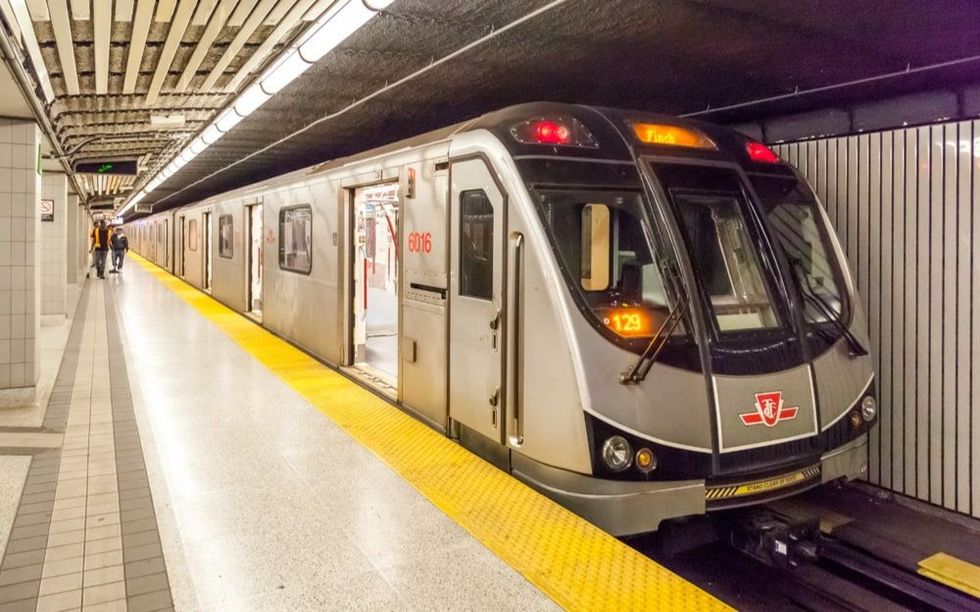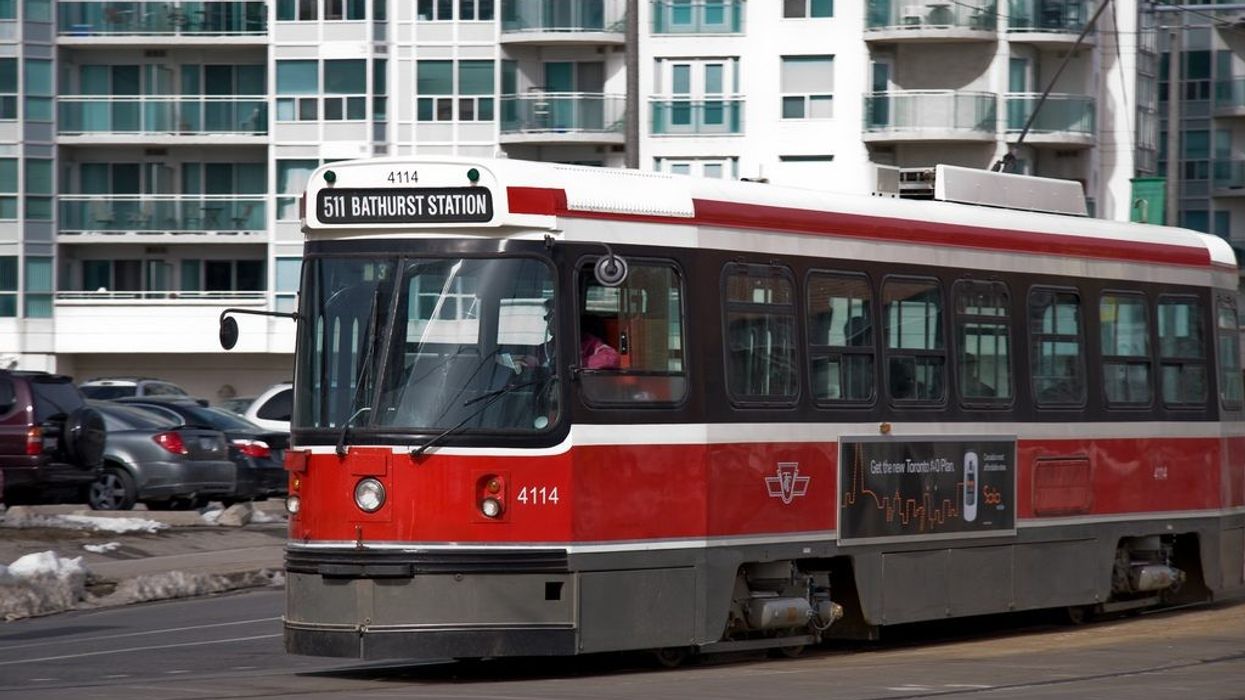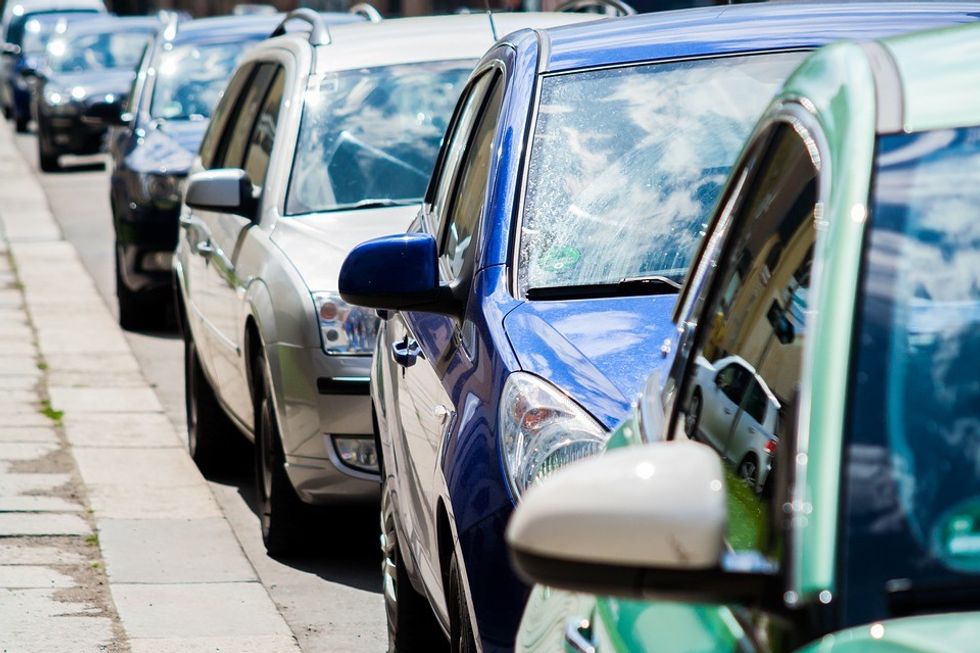While Toronto’s infamous TTC isn't always "the better way" as its once long-time slogan stated, the city could virtually come to a standstill should its trains, buses, and streetcars grind to a halt in the event of a strike. That, most of us can agree on. After all, some 1.3 million riders rely on the service each weekday.
But a strike could become a reality come Friday at 12 am, should countless TTC drivers, station staff, collectors, and maintenance workers walk off the job. For the meantime, with the clock ticking in the background, talks continue between the Amalgamated Transit Union 113, which represents some 12,000 TTC workers, and the Toronto Transit Commission (TTC) continue as they struggle to reach a new deal after a collective agreement expired on March 31. But the union says little progress has been made in these talks.
Countless Toronto residents have recently learned the fun fact that the TTC is not considered an essential service and, therefore, its employees may walk off the job and hit the picket lines. The last time the transit system saw a weekend-long strike was back in 2008, before it was deemed an essential service for 15 years until 2023.

On May 23, ATU announced their official strike date of June 7 after a win in the Ontario Court of Appeal that affirmed that the TTC workers’ right to strike was protected by the Canadian Charter of Rights and Freedoms. “The Local 113’s Bargaining Committee continues to negotiate with the employer; however, we remain far apart on our issues of job security, wages and benefits,” reads a press release issued by ATU on May 23, 2024. “Following the No Board Report issued by the Ministry of Labour, Local 113 will be in a legal strike position as of June 7, 2024. The Executive Board has considered the decision carefully, and we are announcing that we have set our Strike Date for Friday, June 7, 2024.”
As the date looms closer, the possibility of a strike becomes more probable. The union is demanding increases in wages, job security, and benefits. A video posted on the ATU website yesterday highlights Toronto’s sky-high cost of living – from food prices to housing – and the impact it’s having on TTC employees. “Transit workers are struggling to live in a city they help move every day,” says a voiceover.
A TTC strike would cause massive disruptions for an already congested city – and not just for TTC riders. In the event of a strike, there will be no service or transportation-related accommodations provided by the TTC, confirms TTC spokesperson Stuart Green.
It will literally come to a stand-still.
"The TTC and ATU remain at the bargaining table with both sides focused on reaching a new agreement that avoids any service disruption," Green tells STOREYS. "Talks are productive and professional, however, in the event of a full withdrawal of labour there would be no TTC service available. Our belief is that a settlement can be reached and that we can avoid this scenario."
So, countless Toronto residents will be forced to cancel their plans and stay put. For workers who rely on transit for work, they're likely going to have to scramble to find other forms of transportation. "A TTC strike will affect everyone in Toronto, not just transit users," says Shelagh Pizey-Allen, the executive director of advocacy group TTCriders. "A strike means that TTC buses, streetcars, and subways will not run. Workers in many industries and public services depend on the TTC to get to work, and gridlock is already bad: Some workplaces could be closed or short staffed if people cannot get to work, and traffic will get even busier."
There simply isn't a contingency plan... it's not like school bus drivers from across the province will drive into the city and create their own makeshift system (though, some may argue, it may be more efficient than current operations). "We are not aware of any contingency plans that have been shared with the public," says Shelagh Pizey-Allen. "However, ATU Local 113 published a statement on the TTC's strike protocol last night and has confirmed they will 'continue to operate full Wheel-Trans services in the event of a strike/lockout."
The good news is that there isn't a ton happening in the city this weekend. While there are a few festivals taking place, the city won't see any road-closing marathons and the Blue Jays are playing out of town all weekend. We can only imagine the chaos and congestion that would ensue if this was August and we added the CNE, back-to-back Budweiser Stage concerts (this weekend there's only one, Pixies and Modest Mouse, on Saturday night), a Toronto FC game, and a Jays game to the equation.
We're willing to bet that the city's bike share stations will remain bare the duration of the strike, unless you're early enough to scoop one up.
For those coming in to the city from its outskirts, GO Transit will still be in operation.The good(ish) news? While it may be rainy, the temperatures will be perfect for clocking in all those steps. With Toronto's traffic, if you're able to, walking or biking will be the only "better way" available in the event of a strike.






















